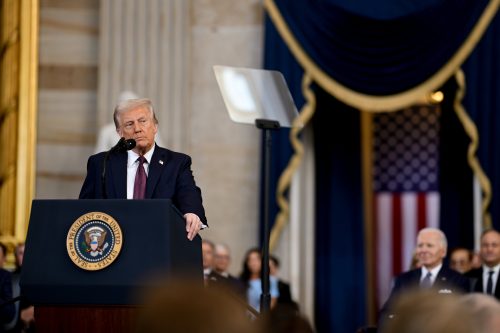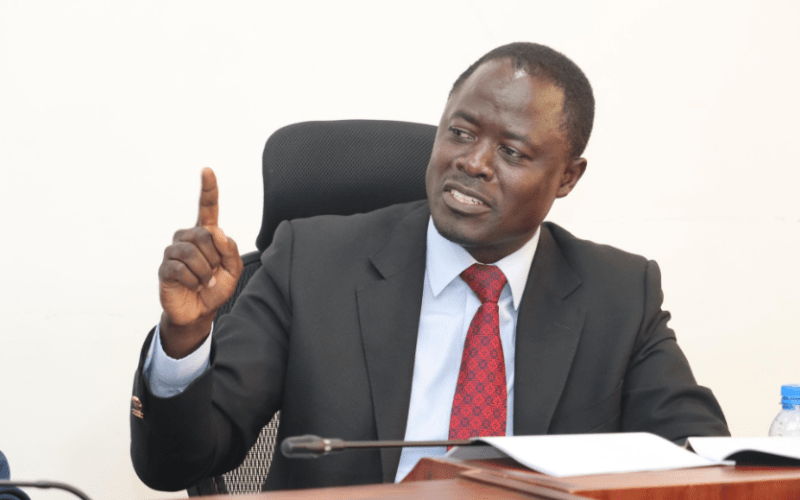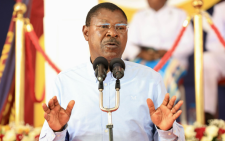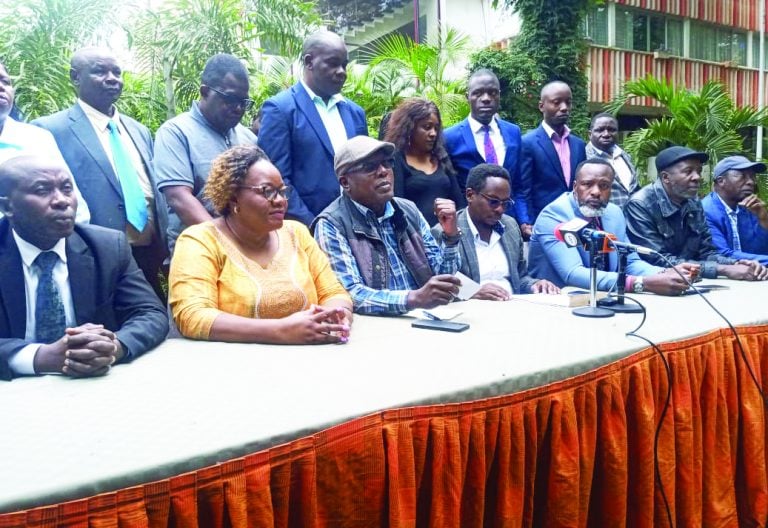MP Kaluma hails President Trump for rolling back transgender protections order

Homa Bay Town Member of Parliament (MP) Peter Kaluma has welcomed U.S. President Donald Trump’s new executive order on gender policies, suggesting it strengthens the position of his proposed Family Protection Bill, 2023, in Kenya.
On January 20, 2025, President Trump signed an executive order designating two genders only – male and female.
The order establishes a biological definition of sex across U.S. federal agencies and declares that they cannot be changed.
“As of today, it will henceforth be the official policy of the United States government that there are only two genders, male and female,” Trump said during his inaugural speech.
Trump’s order removes gender identity considerations from government documentation, prison assignments, and workplace policies.

It specifically mandates that ‘woman’ means an ‘adult human female’ and ends practices such as the required use of preferred pronouns in federal institutions.
In a statement posted on his X account on January 21, 2025, Kaluma praised Trump‘s executive order, describing it as a reversal of former President Barack Obama’s LGBTQ policies.
“Thank you, President Trump, for this executive order, which cancels the executive order President Obama previously issued making LGBTQ a forced policy across the world,” Kaluma wrote.
While welcoming the move, Kaluma linked it to the controversial bill, signalling its return.
“The Family Protection Bill, Kenya, is now fully back,” he declared.
Family Protection Bill, 2023
The Family Protection Bill, 2023, sponsored by Kaluma, proposes some of the harshest penalties against LGBTQ activities in Kenya.
According to Section 4 of the bill, a person commits an offence if they engage in prohibited sexual practices, defined as acts of unnatural sexual practices such as homosexuality, lesbianism, and gender reassignment procedures.
“A person who engages in prohibited sexual practices commits an offence and shall be liable, on conviction, to imprisonment for a term of not less than ten years and not exceeding fifty years,” the bill reads.

On media restrictions, Section 9 of the bill prohibits the production, publication, distribution, or exhibition of prohibited content, defining this as any content found to be “promoting, advocating for, or normalizing prohibited sexual practices.”
The bill proposes a penalty of imprisonment for a term not less than ten years for violating this provision.
The proposed legislation takes a firm stance on education, seeking imprisonment for individuals found guilty of including content with ‘prohibited sexual practices’ in any syllabus, curriculum, or programme of instruction.
“A person shall not include in any syllabus, curriculum, or programme of instruction content relating to prohibited sexual practices.” Violations could result in “imprisonment for a term not less than ten years,” the bill reads.
It further proposes the deregistration of any organization in the country that is found to promote ‘prohibited sexual practices.’
“Any organization registered to promote prohibited sexual practices shall be deregistered, and every director or principal officer of the organization shall be liable, on conviction, to imprisonment for a term not less than seven years,” the bill reads.
Kaluma’s bill has drawn sharp criticism from human rights organizations eliciting mixed reactions from religious groups and political leaders.
It is currently under consideration in Parliament, sparking a debate about human rights, cultural values, and Kenya’s international commitments.












